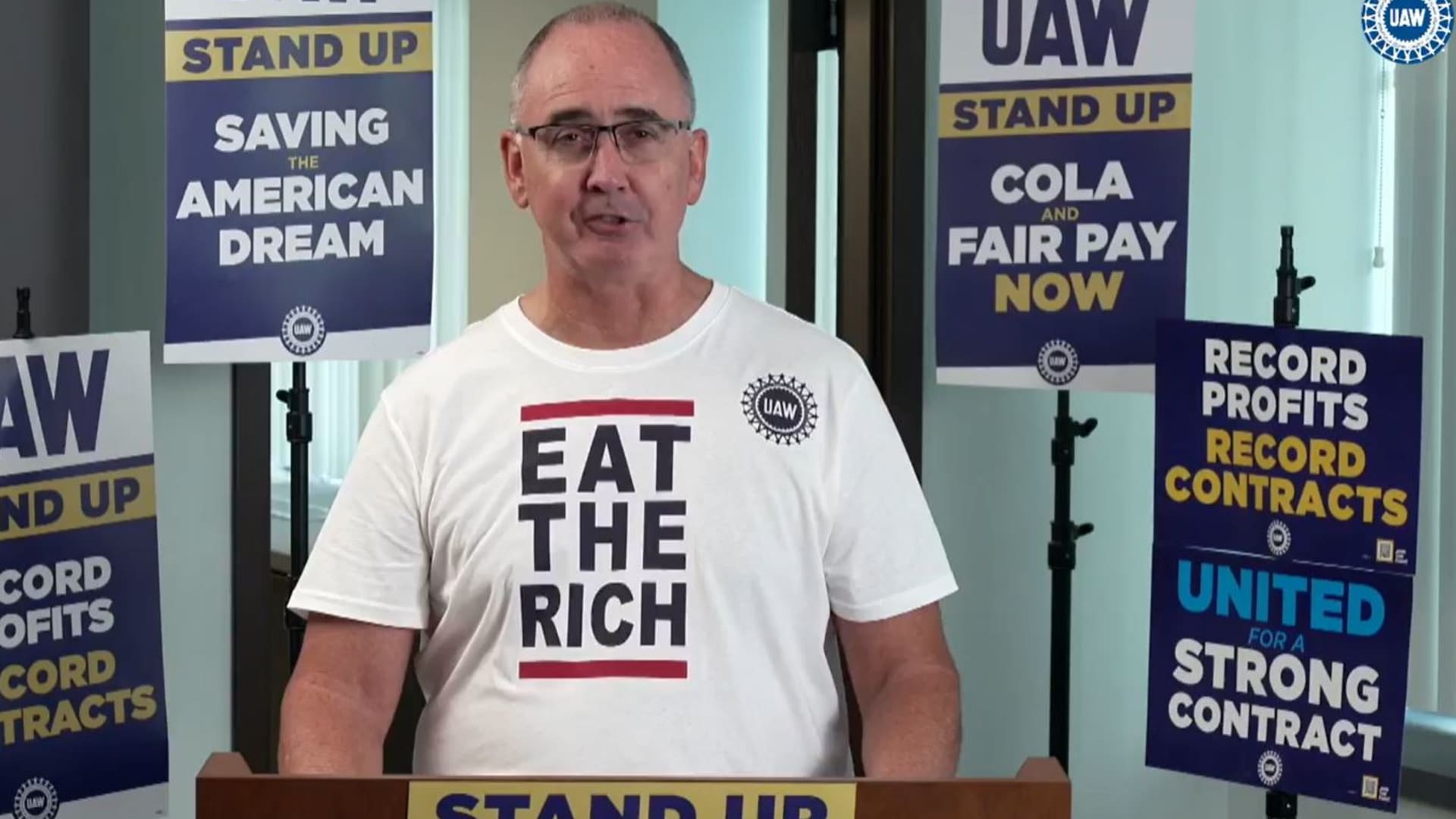At the World Bank’s annual meeting in Morocco last year, the organization’s new president, Ajay Banga, outlined a broad vision for ridding the world of poverty while keeping the planet habitable.
Four months later, Mr. Banga, who took the top job last June, faces his first major management test and early signs of unrest that have little to do with his ambitions to modernize the bank and its ambitions to combat climate change strengthen.
The challenge is linked to an investment the World Bank made a decade ago in a chain of schools in Kenya. The educational project was partially funded by the International Finance Corporation, the bank’s investment arm. Controversy arose when allegations of widespread sexual abuse in schools emerged in 2020, triggering an investigation by the bank’s internal regulator.
The IFC board has considered a revised “action plan” that could come into effect as early as this week.
In recent months, World Bank leadership has been engaged in intense deliberation over how much responsibility to shoulder and whether to compensate victims. The debate has divided countries investing in the bank and put the spotlight on Mr Banga, who will be responsible for finalizing and implementing the action plan.
The case has drawn the attention of development experts and lawmakers, and it is suspected that the World Bank failed to monitor the use of its funds and even took steps to cover up wrongdoing.
While answering questions at an event sponsored by the Center for Global Development in early February, Mr. Banga, a former finance executive, surprised some in the audience when he ruled out the possibility of a cover-up. In response to another question about labor disputes and the bank’s integrity, he expressed frustration over a job he had traveled around the world to secure just a year ago.
“By the way, I would be happy to be fired,” Mr Banga said. “I can return to my private life. More interesting.”
A spokesman for Mr. Banga stressed that he had expressed no dissatisfaction with the job, that he joined the bank because he wanted to lead it and that he strongly believed in the bank’s mission and people.
Mr. Banga was chosen by President Biden to bolster the bank’s efforts to combat climate change and bring a new sense of urgency to a ponderous institution founded after World War II.
His appointment followed the resignation of David Malpass, who was appointed by President Donald J. Trump and frustrated the Biden administration and many Democratic lawmakers when he made ambiguous statements about the causes of climate change.
In his first year in office, Mr. Banga has encouraged wealthy countries to increase their contributions to the bank, and he recently took steps to restructure its loan guarantee program to increase private investment in renewable energy.
World Bank presidents have often faced thorny management tests, and although the recent controversy over the bank’s investments in Bridge International Academies in Kenya came before Mr. Banga, it is now his problem.
“The honeymoon is over,” said Paul M. Cadario, a former senior World Bank executive who asked Mr. Banga the question at the February forum. He said he found Mr Banga’s response flippant.
The World Bank held a $13 million stake in Bridge International Academies from 2013 to 2022. She withdrew from the program after there were complaints of sexual abuse at the schools, leading to internal investigations into the incidents and a review of the way the International Finance Corporation oversees these programs.
A draft report by the bank’s ombudsman, reviewed by The New York Times, detailed more than a dozen cases of child sexual abuse at schools operated by Bridge in Kenya. The report, published last year by The Intercept, also criticized the IFC for its lack of oversight of the project and suggested it looked the other way when complaints arose. It recommended counseling and compensation for victims.
The IFC board, led by World Bank members and Mr. Banga, has struggled in recent months to agree on an action plan. The bank’s member countries are divided over how much responsibility the IFC should take for the abuse at the school and whether directly compensating victims would set a precedent that could complicate other World Bank projects.
Civil society groups have called on the bank to do more to help victims and expressed concern about an agreement between the IFC and Bridge to keep some of the findings of their investigation confidential. They have also criticized a plan proposed by the IFC that would not directly compensate abuse victims.
“The IFC’s proposed response to one of the most serious cases of harm resulting from a failure to conduct due diligence on an ill-conceived investment is no remedy at all for the people who were actually harmed,” said David Pred, executive director and co-founder of Inclusive Development International, a human rights group.
Justin Sandefur, senior fellow at the Center for Global Development, said that while the issue was a small financial matter for the World Bank, it had broader implications for Mr. Banga as a leader who is seeking more partnerships with the private sector.
“I think symbolically it’s becoming a big deal now because he’s willing to set things straight and turn a new page on this,” Mr. Sandefur said.
The process is also being closely watched by lawmakers responsible for approving the funds the U.S. provides to the bank. In a letter to Mr. Banga in January, Senator Elizabeth Warren, Democrat of Massachusetts, and Senator Peter Welch, Democrat of Vermont, warned that the World Bank’s future funding could depend on his handling of the Kenya school investigation.
“We view the Bridge case as a litmus test for the discussion currently underway about IFC’s responsibility to repair the social and environmental harms caused by its projects,” the senators wrote, “particularly those in which IFC is its own Policies not followed, which we see as an important basis for any proposal to increase the resources available to the World Bank Group.”
Ms. Warren and Mr. Welch have also raised their concerns with the Treasury Department, which managed Mr. Banga’s selection for the World Bank and supported him in the nomination process. In late December, a senior Treasury Department official told lawmakers that the department was reviewing allegations of school violence and was concerned about allegations that the IFC had tried to cover it up.
“We share your deep concerns and concerns about the possibility that children were sexually abused as part of an IFC project,” wrote Corey Tellez, acting assistant secretary of the Treasury Department’s Office of Legislative Affairs. “The Treasury Department strongly condemns violence against children and all other human rights violations.”
A World Bank spokesman declined to make Mr. Banga available for an interview. The board, which failed to agree on an action plan in January, plans to meet again to consider a “survival-centered” response.
During the public discussion in February, Mr Banga said he did not believe a sexual abuse scandal had been covered up and pointed out that other foundations besides the IFC had invested in the Bridge schools.
“I think there are a number of things that management could have done better and that is the discussion we will be having with the board shortly,” Mr Banga said.
The board meeting was scheduled to take place in February but has yet to be scheduled. The revised action plan will take effect Thursday unless the board convenes a meeting for further review, according to a person familiar with the process.
Source link
2024-03-13 15:24:27
www.nytimes.com













